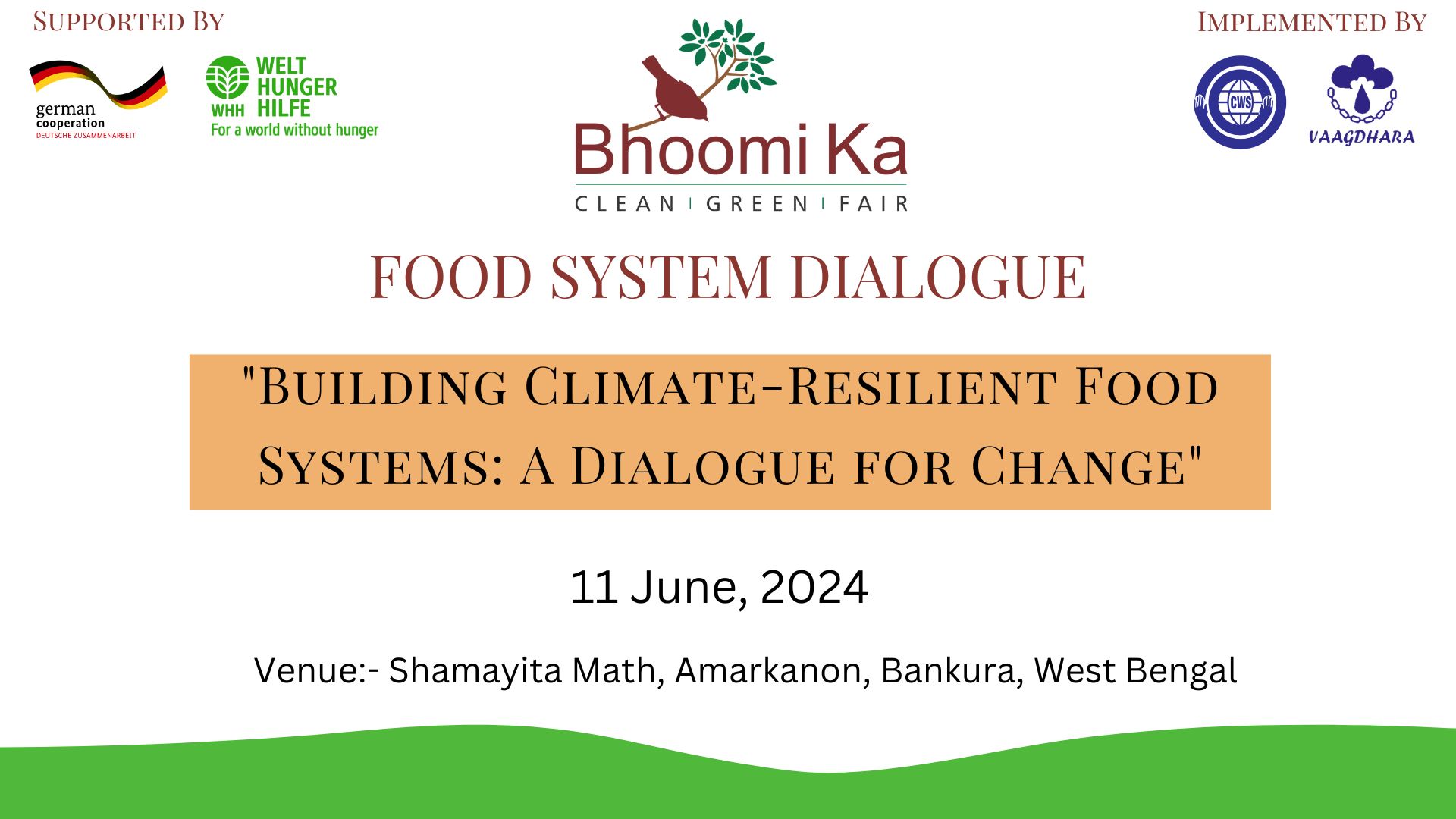
- This event has passed.
FOOD SYSTEM DIALOGUE
June 11, 2024 @ 10:00 am - 3:00 pm

Introduction:
Multitude of institutional, social, economic, and environmental issues significantly impact agriculture. In its endeavor to feed the growing population, agriculture is growing faster than ever before while having fewer resources. This task is of feeding the unfed escalated the effects of climate change. The Green Revolution in the 1960s raised agricultural productivity. Long-term use of intensive agricultural practices, such as heavy Agro-chemical application, high-yielding variety cultivation, and intensive land preparation, increased socio-ecological costs by reducing biodiversity, soil health, water quality in natural waterways, forest cover for agriculture, and the wisdom of traditional agriculture, which in turn affected human health.
In return, the effects of climate change have a significant impact on agriculture as well. For example, high air temperatures alter the timing of planting and harvesting seasons as well as the prevalence of pests and diseases. They also frequently bring on unexpected floods and droughts. If current patterns persist over time, they may eventually result in political and civil unrest, and food insecurity. In this environment, achieving the sustainable development goals of eradicating poverty and hunger while mitigating the effects of climate change requires strengthening agricultural systems’ resilience through sustainable farming practices.
The Inter-governmental Panel on Climate Change (IPCC) defines resilience as a system’s and its constituents’ ability to bounce back quickly and efficiently from adversity while maintaining, repairing, or improving their core basic structures and functions . Agricultural resilience, when applied to the agricultural perspective, is an operational concept that assesses how well agricultural systems are able to manage the dynamics of various uncertainties while fostering an environment that is conducive to learning through adaptive processes like farm practices, governance, risk management, and farm demographics.
Traditional agricultural and agro-ecological practices—such as preserving a significant amount of agro-biodiversity, conserving soil, and using water harvesting techniques—play a significant role in enhancing the resilience of the agriculture system, ultimately ensuring global food security even during climatic variations.
Objective:
to propose a framework through integrating traditional technology into modern agricultural setup with modification for establishing climate-resilient food system.
Key aspects for discussions:
- Climate change adaptation and mitigation strategies.
- Integrating wisdom of traditional and modern agricultural practices.
- Resistant indigenous varieties and traditional agricultural practices which can be adapted to build the system resilience.
Target Audience
– Farmers and FPOs
– Policymakers and government officials
– Academics and researchers
– NGOs and community organizations
– Consumers and food industry stakeholders
– SMEs
– Media
Event Format:
The Food System Dialogue will feature a mix of keynote speeches, panel discussions, interactive sessions, and networking sessions. Participants will have the opportunity to engage with experts, share best practices, and brainstorm actionable solutions to pressing challenges.
Conclusion:
Essentially to understand the cultural, ecological, and socio-economic conditions to determine more efficient agricultural practices to improve the resilience of the agricultural system. To learn numerous traditional methods which can be employed in modern farming strategies in order to make it more nature-friendly.
Let’s established a partnership with nature to combat climate change and guarantee an ample food supply for tomorrow. We can build a strong, eco-friendly food system for everyone if we work together.
